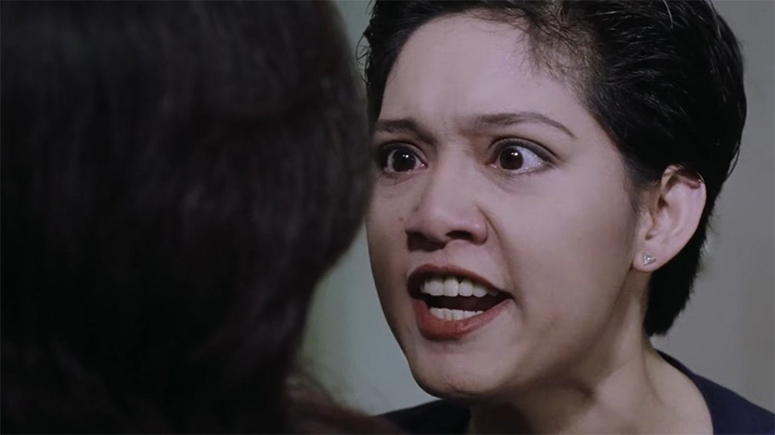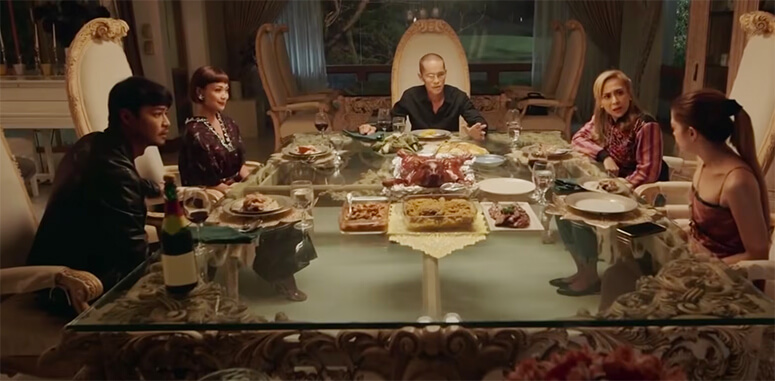What's behind our illicit affair with the kabit-serye?
I remember exactly where I was and what I was doing when one of the most-anticipated episodes of The Legal Wife (2014) aired. Monica (Angel Locsin), the titular wife, finally confronted Nicole (Maja Salvador), the mistress, for the first time. It became so aggressive that Angel's character had to be dragged away.
Although the dissolution of a marriage because of a philandering husband wasn’t new even at that time, The Legal Wife was so well-loved that several of its episodes trended worldwide. In fact, because of its phenomenal success, it’s been adapted in Malaysia as another television series.

It’s ironic, to say the least, that, as the only country aside from Vatican City where divorce is still not legally recognized, we sure are obsessed with infidelity. Almost yearly, television networks and movie production houses churn out new shows and movies with a formulaic plot around this theme. It has now become a subgenre: the kabit-serye.
Sure there are a few variations in each storyline, but the confrontations between the wife and the mistress endure. These emotionally charged scenes are usually filled with clever (and iconic) one-liners and often turn physical. Cue Diamond Star Maricel Soriano in Minsan Lang Kitang Iibigin (1994): “Huwag mo akong ma-Terry-Terry! ‘Yung tanong ko sagutin mo—are you f**king my husband?”

Despite how we view extramarital affairs in Philippine society, the kabit-serye’s chokehold on Filipino audiences may be attributed to the emotional attachment it establishes with the viewers.
In A Broken Marriage Vow (2022), when Dr. Jill (Jodi Sta. Maria) sat at that table with her husband David (Zanjoe Marudo), his mistress Lexy (Sue Ramirez), and the Lucero family, we knew that all hell was about to break loose. When Dr. Jill said, “Papunta pa lang tayo sa exciting part,” a majority of us, if not all, were rooting for her.

The kabit-serye expertly sensationalizes very human emotions such as hurt, rejection, anger, and indignation. It's scandalous but because it values familial ties, it's not entirely devoid of traditional Filipino values.
It loves families but somehow hates women.
Kabit-seryes often project the wife as devoted, submissive, and martyr-like. She will fight for her family, especially her children, even after being victimized repeatedly. On the other hand, the mistresses are usually unrepentant and morally repugnant—the type that easily captures our gigil. Despite their stark differences, however, these women are one and the same in being heavily scrutinized: the wife for losing her husband and the mistress for being a homewrecker.
In these series or movies, women are to blame for their family's falling apart. The wife's shortcomings are normally framed as the reason why the husband cheated in the first place. She's looked down upon by the people around her, while her husband is offered leniency. The men are usually portrayed as wounded. They cheated, but they were lonely or were only tempted by the evil mistresses.

When Charmaine (Cristine Reyes) confronts Kara (Anne Curtis) in No Other Woman (2011), she is insulted for being “a pathetic, boring housewife,” implying that Ram (Derek Ramsay) had cheated because of this. In the next scene, when Charmaine rightfully plans to leave Ram, the latter has the gall to confront Kara for how his wife reacted, almost as if he was faultless in his marital problems.
Men cheat but the responsibility of fixing everything falls on the women. They're expected to do all the heavy emotional lifting since they must protect their children from the harsh truth of their father's actions. On top of that, they have to fight tooth and nail to preserve their family. If they failed, they'd be devalued as a separada.
However, if the tables are turned and it’s the women who commit adultery, they're crucified. Onscreen and in real life, women are treated as their husband's keepers. They're seen as merely an extension of their spouse and they only exist for their family.
While it isn't wrong if a woman chooses her family life over other things, these portrayals are oppressive and limiting. It sends the message that a woman's value is only as good as the family she has and maintains. Regrettably, they are also complicit in this subgenre's apparent misogyny.

In The Unmarried Wife (2016), when Anne (Angelica Panganiban) confronts Cristina (Maricar Reyes), she is blamed for her husband's serial womanizing. According to Cristina, the husband (Dingdong Dantes) cheated because the wife “starved” him. On the other hand, Anne slut-shames and holds the mistress responsible for the destruction of the family she worked so hard building, even though it was the husband’s actions that hurt their family.
I am not claiming that women are blameless in any of these movies and television series. They are, after all, as flawed as any of the characters. But it's important to take into account why we have these portrayals in the first place. What are we trying to teach young girls and boys with such unbalanced gender dynamics? And what are we telling them about family and love?
We won't be bidding our goodbyes to the onscreen extramarital affairs any sooner. Yes, I am aware that the teleserye and movies we consume are not real stories, but they are the most accessible media that can influence how people think. They don’t just reflect our status quo, they also reinforce it.
That's why we need to tell better stories.
In a country that has yet to legalize divorce and annulment remains elusive to the majority of our population, stories that teach young girls to stop blaming themselves for things that are not their fault are important. We need to tell them that love is worth fighting for but it's not worth all that trouble. We also have to teach young boys to take responsibility for their commitments. Clichéd as it is, it takes two to tango.


